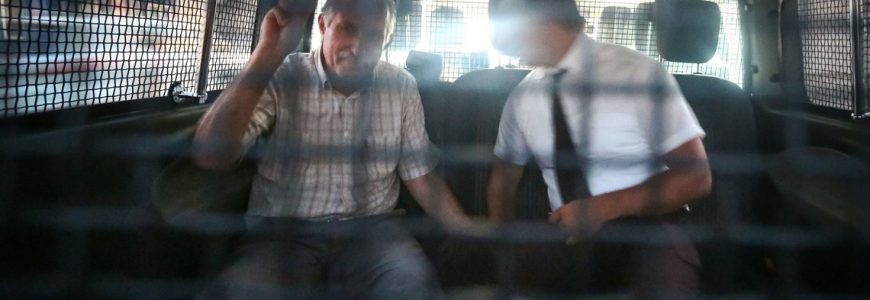On 8 August, Azerbaijani tax authorities launched an investigation of Turan News Agency. Local civil society activists and international human rights organizations believe this investigation is aimed at the termination of the activities of the last independent media outlet in the country. On 24 August Mehman Aliyev, the director of the news agency and a well-known journalist was sentenced to three months pretrial detention on charges of tax evasion, illegal entrepreneurship and abuse of power. As a result, Turan announced that it planned to suspend its operations as of September.
A few weeks ago President Aliyev granted housing to more than 250 journalists, which appeared to be another attempt to keep them under control. No surprise that almost all of the journalists on the list were working for pro-government media. But if you are committed to the values of independent journalism and if you are principled enough to defend your values, the prize you receive is threats, prosecution and prison cells. For Azerbaijani authorities, it is handier to target those who highlight social problems instead of introducing reforms to solve the problems.
In October 2018, Azerbaijan is expecting another Presidential election. Current circumstances for independent media and democratic institutions as well as the lack of a competitive environment with opposition political groups already raise serious questions about the transparency and legitimacy of the elections.
No doubt that the main objective of the recent wave of repression is to eliminate all critical and alternative voices before the vote. This is not happening for the first time. Before the last Presidential elections in 2013, Ilham Aliyev faced criticism on local and international levels over running for the Presidency for the third time, in contradiction of constitutional values. A few months ahead of that election, the authorities arrested Ilgar Mammadov, one of the leading opposition figures, and Anar Mammadli, head of the key election observation group, as well as a number of youth activists. By creating an atmosphere of fear, the ruling regime tried to ensure that no alternative voices would be heard on the eve of the elections. Ilgar Mammadov is still behind bars as the next vote approaches. He is spending his fifth year in prison despite the decision of the European Court of Human Rights in favor of his release, which was issued almost three years ago.
The most unprecedented wave of repression in Azerbaijan took place in the summer of 2014, when all the country’s independent civil society leaders were either imprisoned or had to flee into exile. This happened just a few months ahead of the 2015 Parliamentary elections, which reputable election observation missions rejected to observe due to the restrictions introduced by Azerbaijani authorities.
Now we are witnessing another wave of crackdowns. A couple of months ago, the regime in Azerbaijan abducted investigative journalist Afgan Mukhtarli from the streets of Tbilisi and put him in a prison in Baku, demonstrating that they do not care about borders and international law when it comes to repression. By imprisoning Gozal Bayramli, one of the leaders of the opposition movement, as she returned from Georgia where she was receiving treatment for serious health problems, the authorities also proved that have no respect for humanitarian values.
Unfortunately, international reactions to the vicious cycle of government crackdowns in Azerbaijan have not been sufficient so far. Even though open governance coalitions OGP and EITI have suspended Azerbaijan’s membership due to its failure to provide an enabling environment for civil society, this had no effect on the international financial institutions which provide financial assistance to a government which is not willing to improve transparency and respect the fundamental rights of its citizens.
Clearly this is going to be a challenging year for democracy in Azerbaijan. Therefore, it is high-time for the international community to support the voices of civil society in the country and to express solidarity with them against the oppressive attitude of the ruling regime.

